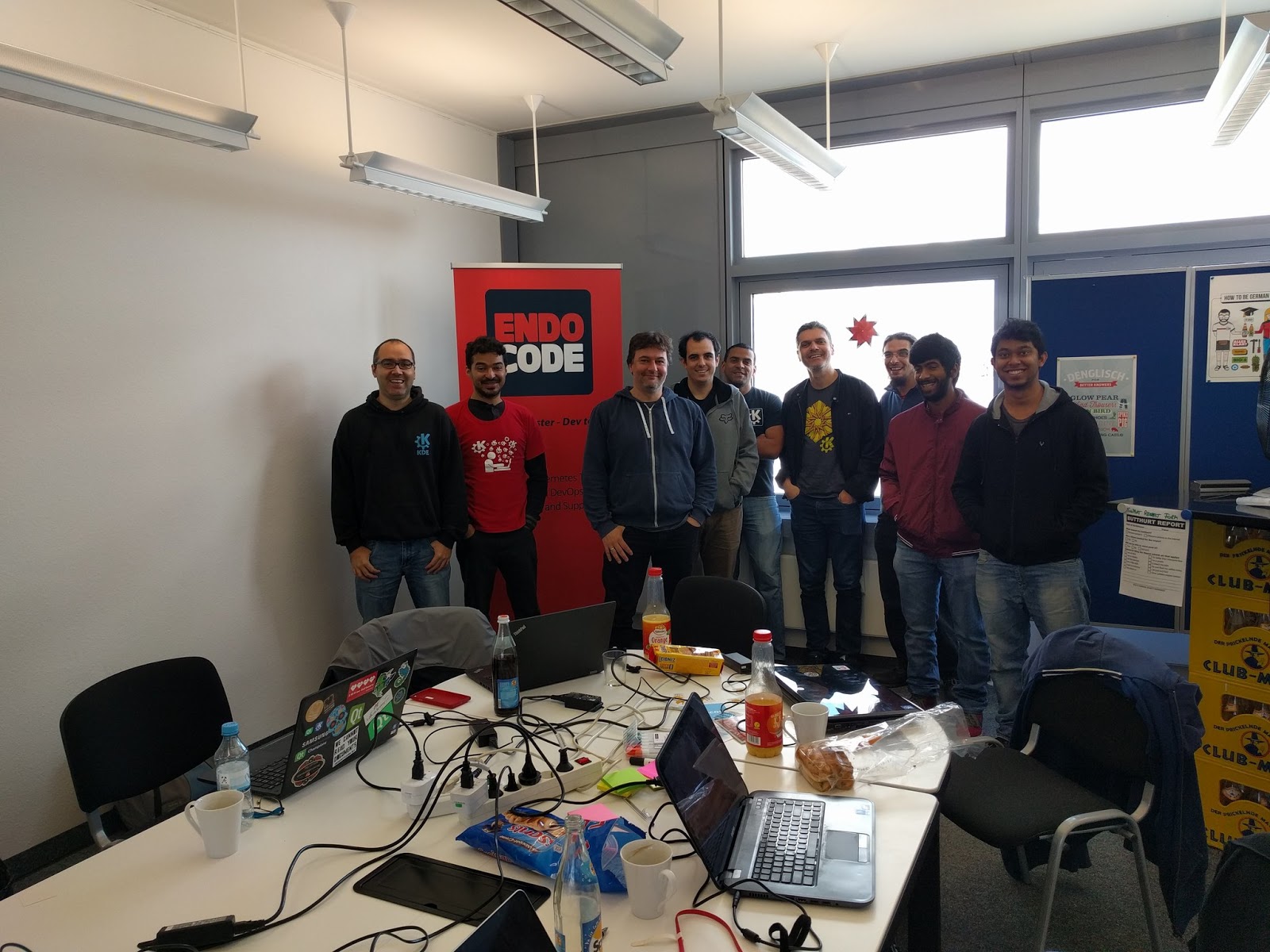
Two months ago I attended to KDE Edu Sprint 2017 at Berlin. It was my first KDE sprint (really, I send code to KDE software since 2010 and never went to a sprint!) so I was really excited for the event.
KDE Edu is the an umbrella for specific educational software of KDE. There are a lot of them and it is the main educational software suite in free software world. Despite it, KDE Edu has received little attention in organization side, for instance the previous KDE Edu sprint occurred several years ago, our website has some problems, and more.
Therefore, this sprint was an opportunity not only for developers work in software development, but for works in organization side as well.
In organization work side, we discuss about the rebranding of some software more related to university work than for “education” itself, like Cantor and Labplot. There was a wish to create something like a KDE Research/Science in order to put software like them and others like Kile and KBibTex in a same umbrella. There is a discussion about this theme.
Other topic in this point was the discussions about a new website, more oriented to teach how to use KDE software in educational context than present a set of software. In fact, I think we need to do it and strengthen the “KDE Edu brand” in order to have a specific icon+link in KDE products page.
Follow, the developers in the sprint agreed with the multi operating system policy for KDE Edu. KDE software can be built and distributed to users of several OS, not only Linux. During the sprint some developers worked to bring installers for Windows, Mac OS, porting applications to Android, and creating independent installers for Linux distributions using flatpak.
Besides the discussions in this point, I worked to bring a rule to send e-mail to KDE Edu mailing list for each new Differential Revisions of KDE Edu software in Phabricator. Sorry devs, our mailboxes are full of e-mails because me.
Now in development work side, my focus was work hard on Cantor. First, I made some task triage in our workboard, closing, opening, and putting more information in some tasks. Secondly, I reviewed some works made by Rishabh Gupta, my student during GSoC 2017. He ported the Lua and R backend to QProcess and it will be available soon.
After it I worked to port Python 3 backend to Python/C API. This work is in progress and I expect to finish it to release in 18.04.
Of course, besides this amount of work we have fun with some beers and German food (and some American food and Chinese food and Arab food and Italian food as well)! I was happy because my 31 years birthday was in the first day of the sprint, so thank you KDE for coming to my birthday party full of code and good beers and pork dishes. 🙂
To finish, it is always a pleasure to meet the gearheads like my Spanish friends Albert and Aleix, the only other Mageia user I found personally in my life Timothée, my GSoC student Rishabh, my irmão brasileiro Sandro, and the new friends Sanjiban and David.
Thank you KDE e.V for provide resources to the sprint and thank you Endocode for hosting the sprint.